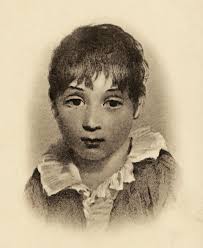Changing Interpretations Over Time: Twentieth and Twenty-First Century
Our critical perspectives thus far have taken us to 1945 - which you may conceive of as a significant year in the twentieth century. Now it is time to explore some more contemporary criticism in the second half of the twentieth century, and right up to today. I have included a list below to get you started - it is by no means exhaustive. (There are even some women on the list who have some opinions. Just saying.) The idea is to pick one and read a whole essay - rather than just a few paragraphs as we have done up until now - but then to do that selective job of identifying a few hundred words to share. And, of course, you aren't limited to these names if you come across something interesting as you are searching. Harold Goddard Harry Levin L. C. Knight Carolyn Gold Heilbrun Michael Long Helen Gardner Patrick Crutwell Marilyn French Leonard Tennenhouse Janet Adelman Elaine Showalter David P Gontar Harold Bloom Happy reading!




